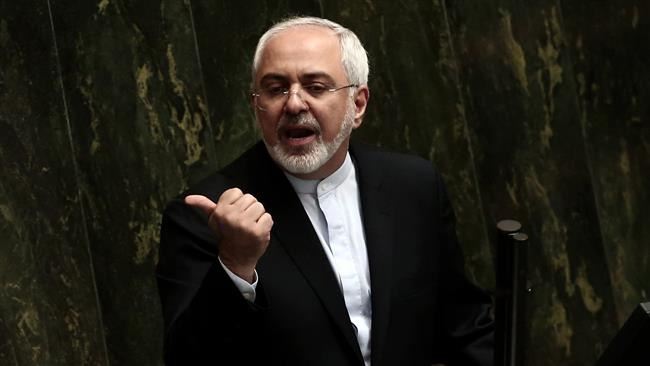Iran’s Foreign Minister Mohammad Javad Zarif said Tuesday that the issue of reversibility to the conditions before a nuclear deal signed last week is not just an option for Iran’s international partners but also for Tehran
Iran’s Foreign Minister Mohammad Javad Zarif said Tuesday that the issue of reversibility to the conditions before a nuclear deal signed last week is not just an option for Iran’s international partners but also for Tehran.
 Addressing an open session of the Majlis (Parliament), Zarif referred to potential concerns over a mechanism for the reversibility of the United Nations Security Council (UNSC) sanctions against Iran and explained that the potential restoration of the sanctions against Iran will not be an easy move for the Council and will harm its standing.
Addressing an open session of the Majlis (Parliament), Zarif referred to potential concerns over a mechanism for the reversibility of the United Nations Security Council (UNSC) sanctions against Iran and explained that the potential restoration of the sanctions against Iran will not be an easy move for the Council and will harm its standing.
He said that even a potential vote for the return of the sanctions at the UNSC through a veto will be costly for the UNSC as world countries have little regard for resolutions approved with a veto.
Zarif and Head of the Atomic Energy Organization of Iran (AEOI) Ali Akbar Salehi participated in the Tuesday open session of the Majlis to brief parliamentarians on the Joint Comprehensive Plan of Action (JCPOA) concluded between Iran and the P5+1 group of countries on July 14.
The mechanism for the restoration of sanctions that Zarif was talking about is one under which any of the six countries in the P5+1 can raise what it considers as a violation of the nuclear agreement by Iran; the issue would then be referred to dispute resolution panels, whose deliberations can take up to 30 days or more. On the thirtieth day, and as issues remain unresolved, the sanctions would automatically be re-imposed, Press TV said.
The process cannot be interrupted except by a majority vote in the Security Council. But any of the five permanent members can use its veto power to ensure that the re-imposed sanctions remain in place.
In his opening remarks, Zarif said that the Iranian negotiators in the talks that led to the conclusion of the JCPOA proved that the Islamic Republic is ready to negotiate but will not allow the “six ostensibly powerful countries” to resort to extortion.
He said the negotiators made it clear to the six countries and the European Union (EU)’s high representative that “no one can ever threaten an Iranian.”
The Iranian foreign minister, who was Iran’s top negotiator at the talks, said it was also made clear to the world that enrichment and related research and development will never be stopped in Iran.
‘Israeli anger only natural’
Zarif said it is no wonder that, angered by the conclusion of the JCPOA, Israeli Prime Minister Benjamin Netanyahu raises a hue and cry and appeals to the US Congress to torpedo the agreement, which will seriously threaten the Israeli regime.
“The much-hated Zionist regime (Israel) has never been this much isolated among its [own] allies,” the top Iranian diplomat said.
Zarif further said that “we have never claimed and do not claim that the JCPOA is completely to the benefit of Iran; I emphasize that negotiating is basically giving [something] and taking [something in return], and unless a significant level of the two sides’ demands are met, no agreement is reached.”
“In order to meet demands,” he said, “we have had certain flexibility concerning restrictions and monitoring; this flexibility has been goal-oriented and well-calculated.”